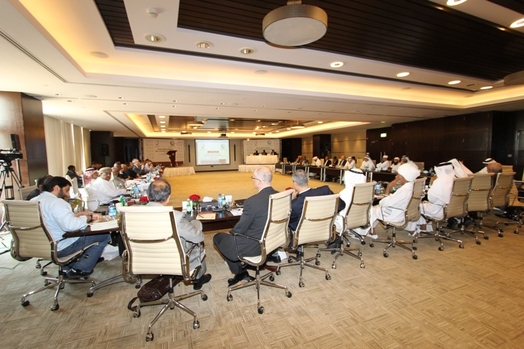
Following a meeting in Kuala Lumpur on Aug. 3, Organization of Islamic Cooperation’s (OIC) Department for Humanitarian Activities, known as ICHAD, held a meeting in Doha, capital city of Qatar, with civil society organizations from OIC member countries in order to discuss the concrete steps that will be taken for humanitarian relief activities for Arakanese Muslims. ICHAD has already received permission from Myanmar government to take humanitarian relief to Arakanese Muslims.
The one-day meeting, which was hosted by Qatar’s Al-Hayriyah, was attended by 60 representatives from 43 humanitarian relief organizations. The participants of the meeting agreed that humanitarian relief efforts for Arakan should be carried out under the umbrella of the OIC.
The details of an agreement an OIC delegation made with Myanmar government following the Aug. 3 meeting in Kuala Lumpur and how relief organizations will benefit from this agreement were also discussed at the meeting.
Noting that the biggest problem of Arakanese Muslims is a lack of homeland, OIC Secretary General Assistant Atta Abdul Manna talked about OIC’s effort to protect Arakanese people, his impressions during his visit to Arakan, advantages of the agreement made by Myanmar government and the list of aid items needed by the region.
Jusuf Kala, former vice president of the Republic of Indonesia and head of Indonesian Red Cross, who was one of the participants of the meeting, said the crisis in Arakan has historical, political, ethnic, cultural, economic and religious dimensions, political pressure on Myanmar government will not be sufficient alone to end the conflict and that it is urgent to open a humanitarian aid corridor by giving assurances to the Myanmar government.
IHH International Communication and Diplomacy Coordinator İzzet Şahin, who represented the IHH at the meeting, said the foundation has been extending a helping hand to Arakanese Muslims for 17 years, the IHH gives importance to the agreement made by the OIC and that agreements made by Turkish government and Turkish Red Crescent with Myanmar government can also be benefited when necessary.
Şahin also said while relief organizations concentrate their attention on the situation of Muslims in Arakan, more than 500,000 Arakanese refugees in Bangladesh should not be neglected.
“The worst thing awaiting Arakanese people today is plans by Myanmar government to force the Muslim minority in the region to live in ghettos it will establish in the coastal areas. The only acceptable thing for us is the return of Arakanese Muslims to their villages and their protection against similar massacres,” Şahin added.
Making presentations at the meeting, OIC, Al-Hayriyah and Turkish Red Crescent gave information about the latest situation in Arakan. The main subject of the presentations were burnt villages, demolished houses, mosques, schools, people who were forcibly displaced, humanitarian tragedy in the camp established in Sittwe, hardships caused by the martial law, needs and proposals for a solution in Arakan. It was underlined that there is urgent need for 8,000 houses for Arakanese Muslims as they live in overcrowded refugee camps where there is only one toilet for every 200 people.
Civil society organizations pledged donations for Arakan at the meeting. IHH made a pledge for $10 million donation for the region. The fact that $10 million out of the $25 million donations in total was pledged by IHH has once again shown the sensitivity of Turkish people for oppressed people. The meeting ended with the release of a press statement.